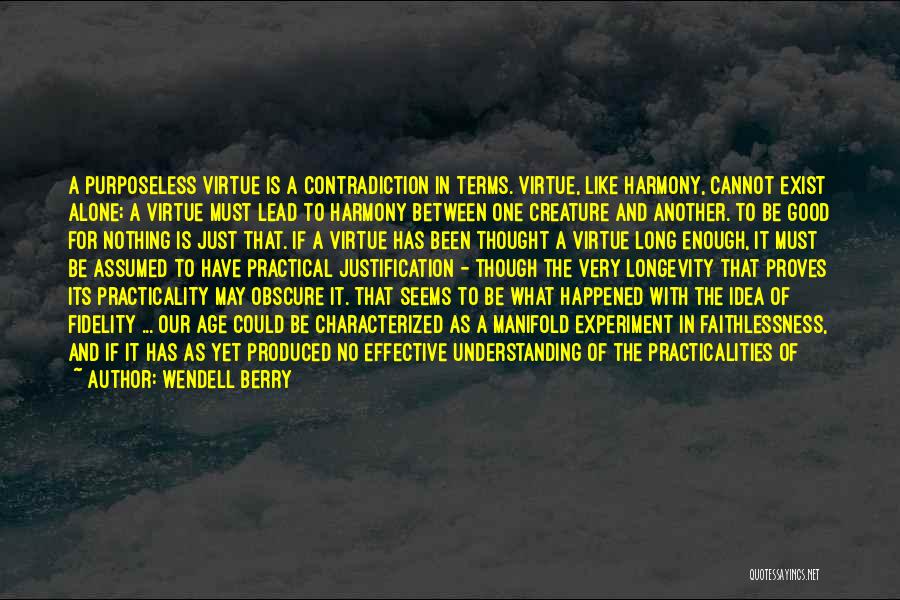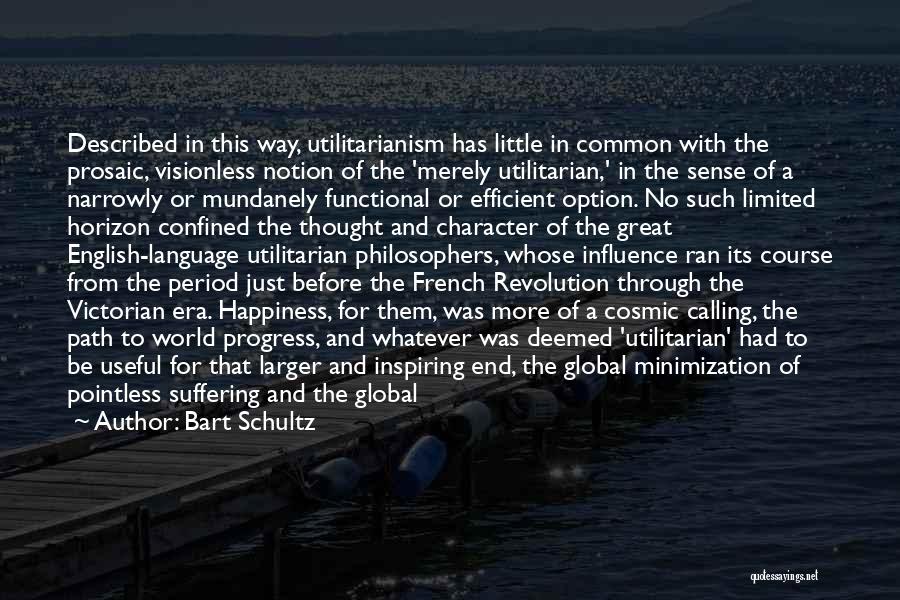Thought Practicality Quotes & Sayings
Enjoy reading and share 3 famous quotes about Thought Practicality with everyone.
Top Thought Practicality Quotes

A purposeless virtue is a contradiction in terms. Virtue, like harmony, cannot exist alone; a virtue must lead to harmony between one creature and another. To be good for nothing is just that. If a virtue has been thought a virtue long enough, it must be assumed to have practical justification - though the very longevity that proves its practicality may obscure it. That seems to be what happened with the idea of fidelity ...
Our age could be characterized as a manifold experiment in faithlessness, and if it has as yet produced no effective understanding of the practicalities of faith, it has certainly produced massive evidence of the damage and disorder of its absence.
(pg.115-116, "The Body and the Earth") — Wendell Berry

She didn't believe there was anything like perfect, fairytale love. Most people were flawed and prone to mistakes. She thought herself a romantic but treated love with the same practicality she did most things. They'd had fall-outs and misunderstandings but she'd never been free to be herself like she was with Edward. She couldn't imagine being with another person after him. — Myne Whitman

Described in this way, utilitarianism has little in common with the prosaic, visionless notion of the 'merely utilitarian,' in the sense of a narrowly or mundanely functional or efficient option. No such limited horizon confined the thought and character of the great English-language utilitarian philosophers, whose influence ran its course from the period just before the French Revolution through the Victorian era. Happiness, for them, was more of a cosmic calling, the path to world progress, and whatever was deemed 'utilitarian' had to be useful for that larger and inspiring end, the global minimization of pointless suffering and the global maximization of positive well-being or happiness. It invokes, ultimately, the point of view of universal benevolence. And it is more accurately charged with being too demanding ethically than with being too accommodating of narrow practicality, material interests, self-interestedness, and the like. — Bart Schultz





